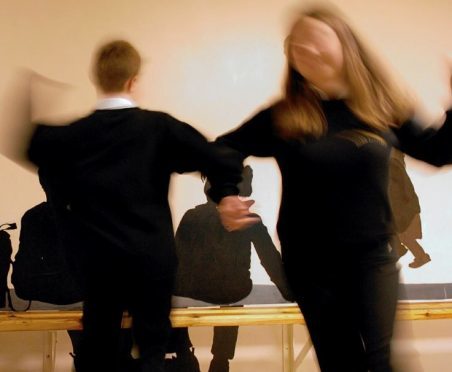Experts have called for a shake-up of the way Scottish country dancing is taught in schools – or say it may need to be scrapped to stamp out bullying.
Generations of teenagers have faced the dread of being picked last, or being paired with a member of the opposite sex during the lessons, which tend to replace the regular football, swimming and gymnastics sessions in the countdown to Christmas.
But now the chairwoman of a national PE teaching body has suggested the time may have come to drop the lessons.
It comes after campaigners warn that social dancing in school can lead to “hurtful” comments, and increased anxiety as nobody wants to be picked last.
And one LGBTI charity has also reported an increase in calls from pupils seeking help during social dance lessons, due to bullying.
Karen McCubbin, general secretary of the Scottish Association of Teachers and Physical Education, yesterday admitted the “gender-specific” nature of social dancing could provide a link to bullying and homophobia.
She said: “Do we drop social dance for the curriculum, perhaps, or do we shift the way it’s taught?”
She feels that the best option would be to delve deeper into the “cultural heritage” of social dance and open up “the debate about why girls and boys would be paired.”
Hugh Torrance, executive director of Leap Sports Scotland – which campaigns for greater inclusion of LGBTI people in sport – believes more needs to be done to make the lessons more enjoyable for all.
He stressed he was not calling for the dancing classes to be scrapped, but said: “We work with young people in schools and dancing brings up some issues because it’s not always clear what is ‘banter’ and what’s not.
“The novelty of bringing all the class together for social dancing on an annual basis creates another layer for a proving ground of masculinity.
“There generally tends to be a lot of uncomfortable-ness and the pupils feel it’s amplified. One recent story was when a boy pulled his sleeve over his hand so he didn’t have to touch the ‘gay boy’ incase he caught it.”
Mr Torrance added that the charity will now work with young people to produce a list of “dos and don’ts” to be distributed around schools, and called for teachers to stamp out homophobic behaviour.
He hopes the guidance will be available for 2017/18 school session.
